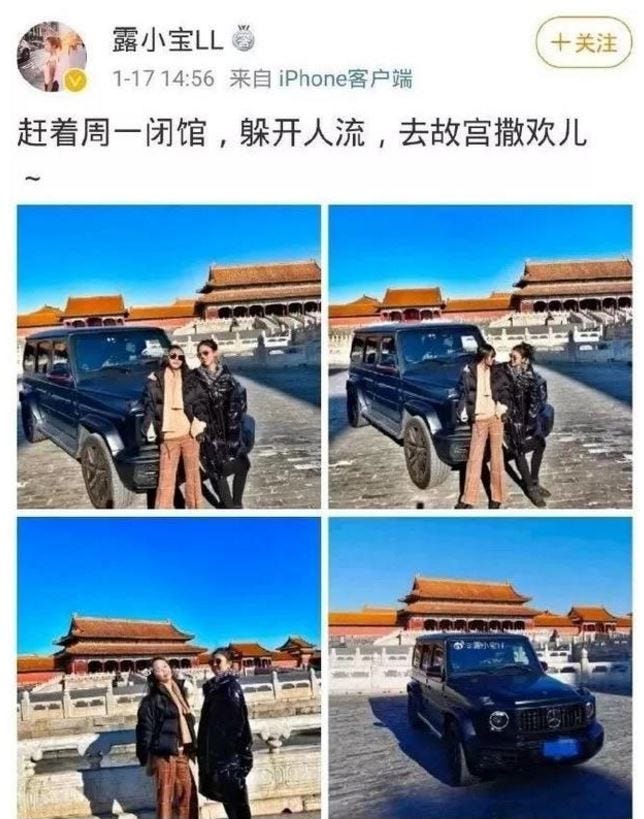The video was from a relative of Adam Ni who is co-editor of China Niecan.
Here's a sample:
Neican Brief: 19 January 2020
Forbidden Palace (for some); Phase One trade deal; GDP & population; Wuhan coronavirus.
This week we look at a firestorm of public opinion caused by someone that drove into the Forbidden Palace; the temporary interlude in the US-China trade war that is the Phase One trade deal; China’s new GDP and population figures; and the coronavirus outbreak in Wuhan.
1. Driving into the Forbidden Palace
Forget the China-US phase one trade deal, Spring Festival or the outbreak in Wuhan. The biggest trending topic for Chinese netizens this week is about a social media post featuring four photos captioned “having some fun at the Forbidden City on a closure day to avoid the crowd.”
Ms Lu had zero ideas that hell was about to break loose.
For background, Ms Lu and her friend drove into Forbidden Palace on Monday. The palace was closed that day to the public due to maintenance. According to regulations, cars are not allowed into the Forbidden City. Exceptions are not even made for visiting foreign dignitaries.
What angered Chinese netizens most in this episode is the notion of elite privilege. The potent symbolism of the Forbidden Palace coupled with Ms Lu’s powerful and wealthy “red family” background catalysed a firestorm of public outcry.
Essentially, how come Ms Lu can do what an average person on the street can’t, and what does it say about a country when its elites are above the law?
Censors stepped in shortly to contain the damage but did not expunge all discussions, probably because they fear a heavyhanded approach could further provoke public outrage.
Instead of a full expunge of public discussion on this, Party-state media intervened to “lead” public opinion. A People’s Daily comment stated that “the Forbidden City cannot be allowed to be crushed [under the weight of car wheels];” another said that “everyone is equal before the rules, no one has the privilege of “having some fun” in contravention.
Today, the Forbidden City is a symbol of the magnificence and oppression that is dynastic China’s legacy. It sits at the heart of the new Red Empire, awing visitors with its grandeur and power.
But…one…single…microblog post is all it takes to strike a raw nerve in the Chinese people. There is deep deep resentment of elite privilege, inequality, cronyism and corruption. The moral decay and hypocrisy of the ruling class is often clearer to the Chinese people than foreigners notwithstanding censorship.....MORE
As one Twitter user put it:
其实被碾压哪只是故宫啊,是每一位普通公众的内心 in actuality, it is not just the Forbidden City that is damaged, [what is crushed] is the heart of every ordinary [member of the] public.
That is something that anyone who has studied the social stratification in Soviet Russia and its East Bloc satellites will recognize: People have an innate sense of fairness and really don't like the nomenklatura.
Interesting to see it is so close to the surface in China.
